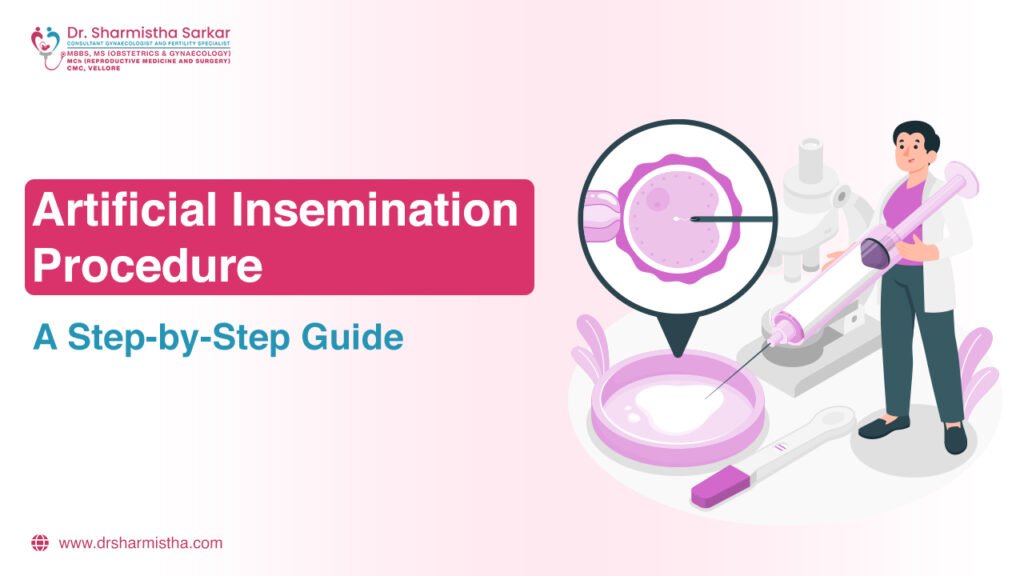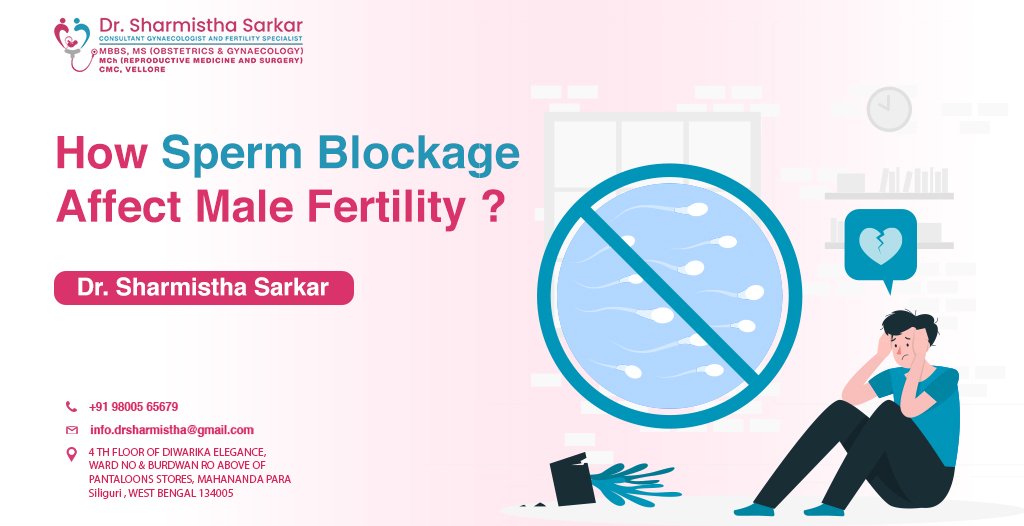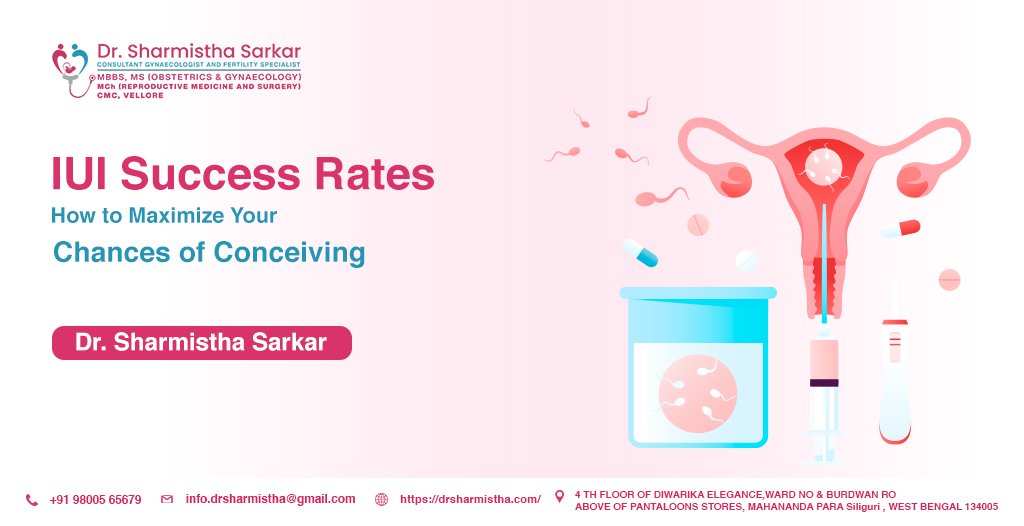Artificial Insemination Procedure: A Step-by-Step Guide
Artificial insemination is one of the processes of assisted reproduction, and it serves as a ray of hope for infertile couples. Through this process, in order to fertilize, sperm is inserted into the female reproductive system. This method assists a number of couples who experience infertility from a fertility issue to realize their dream of parenthood.In this detailed guide, the artificial insemination procedure and how it would occur at each stage, from consultation will be included. Awareness and knowledge of each stage can help decision-making and perhaps also the effectiveness of the procedure on individuals. What is Artificial Insemination? It serves as an effective treatment for issues with fertility. When conception does not take place naturally due to various reasons, then the insemination procedure involves collection, processing, and inserting of the partner’s or donor’s sperm into the reproductive tract of the woman. The sperm should be as close as possible to the egg during ovulation to enhance its ability to fertilize. AI can be of two prominent types: IUI: The most commonly used type of artificial insemination is intrauterine insemination. Washed sperm are inserted via a very thin catheter directly into the woman’s uterus. By bypassing the cervix and depositing sperm closer to the fallopian tubes, IUI enhances the chance of fertilization. It is generally useful with mild male infertility or when there is a problem with cervical mucus. The procedure is carefully timed to coincide with ovulation and is often painless. ICI: Intracervical insemination being more simple and natural where sperm is placed near the cervix and allowed to travel into the uterus in its own way. The approach is a reflection of natural intercourse and is usually employed for cases where minimal fertility problems exist. It is less invasive and less costly than the IUI procedure, but its success rate is typically lower. Hence, it still counts as a choice for those who want to opt for a less clinical approach to parenthood. Step-by-step Procedure for Artificial Insemination 1. Initial consultation and assessment The Artificial Insemination Procedure begins with a consultation from a fertility Specialist like Dr. Sharmistha Sarkar. Your medical history and hormonal status are evaluated. An ultrasound is used to look over reproductive organs and semen analysis tests sperm quality. Depending on all these results, your doctor will recommend the most suitable insemination method to be done. 2. Ovulation monitoring Through precise timing, artificial insemination can be done perfectly. Ovulation tracks are done via ultrasound or ovulation kits. If required, the patient may be administered medications for stimulating ovulation and ensuring the egg count at the time of the procedure. 3. Sperm Collection and Processing In the case of using the partner’s sperm, collection is done on the day of insemination. If donor sperm is used, it will be frozen and then be thawed on the same day. The sample is taken to the laboratory where a washing procedure is carried out to isolate the healthiest and most motile sperm, thus creating maximum potential for fertilization. 4. Timing the insemination Insemination is performed about 24 to 36 hours later after the peak of LH surge or hCG trigger shot to maximize the opportunity for fertilization of the egg by sperm. Proper timing really does give a lot more opportunity for a successful conception. 5. Insemination Procedure A simple outpatient procedure is carried out at the clinic. The woman lies on the exam table, and a speculum is inserted inside her vagina. Thereafter, the procedure may consist of inserting the processed sperm directly inside the woman’s uterus or depositing them near the cervix with a thin catheter. It takes less than five minutes and is thus relatively painless, with slight discomfort. 6. Post-Insemination Rest and Care After the insemination, patients may be required to rest for 15 to 30 minutes. Some mild cramping or spotting may occur but will quickly go away. Patients need not remain confined to bed; some light activity is generally recommended for the day. 7. The Two-Week Wait and Pregnancy Test After insemination, a two-week wait begins, dependent on whether implantation may occur. Avoid testing too soon, as it will only provide false results. On the thirteenth or fourteenth day, pregnancy can be confirmed via either a blood or home pregnancy test. When is Artificial Insemination Recommended? The following conditions may suggest a recommendation for artificial insemination: Unexplained infertility: When a clear cause cannot be identified for infertility following an in-depth evaluation. Mild male factor infertility: Situations where sperm count or motility is slightly below the norms but is probably still effective. Cervical mucus problems: When the cervical mucus is hostile or insufficient in assisting sperm to reach the egg naturally. Ejaculation dysfunction: Where conditions of ejaculation make it difficult or impossible for conception to take place naturally. Using donor sperm: It is a way of creating pregnancy using donor sperm for those sperm-related issues. Advantages of Artificial Insemination Since it is practical and natural, artificial insemination is typically chosen by most couples for fertility treatment: Low-risk and non-surgical procedure: The procedure involves a minor surgery and causes the least discomfort with fewer complications. Relatively low-priced compared to IVF: The charges for standard artificial insemination are much less than advanced fertility treatments like in-vitro fertilization. Partner’s or donor’s sperm can be used: Depending on the particular fertility challenge or circumstance. It can be useful for many kinds of infertility: To treat male infertility, unexplained infertility or ovulation problems. Possible Risks and Side Effects Though generally safe, artificial insemination can sometimes involve minor side effects or risks: Cramping and spotting after the procedure: A slight irritation to the uterine lining may cause some temporary cramping accompanied by light bleeding. Slight risk of infection: Introduction of bacteria during the process may cause infection. Ovarian hyperstimulation: Fertility drugs can cause the ovaries to become overstimulated and cause discomfort. Multiple pregnancies (twins or triplets): The chances of giving birth to more than one child are increased when drugs for ovulation induction are being taken. Make Parenthood
Artificial Insemination Procedure: A Step-by-Step Guide Read More »











